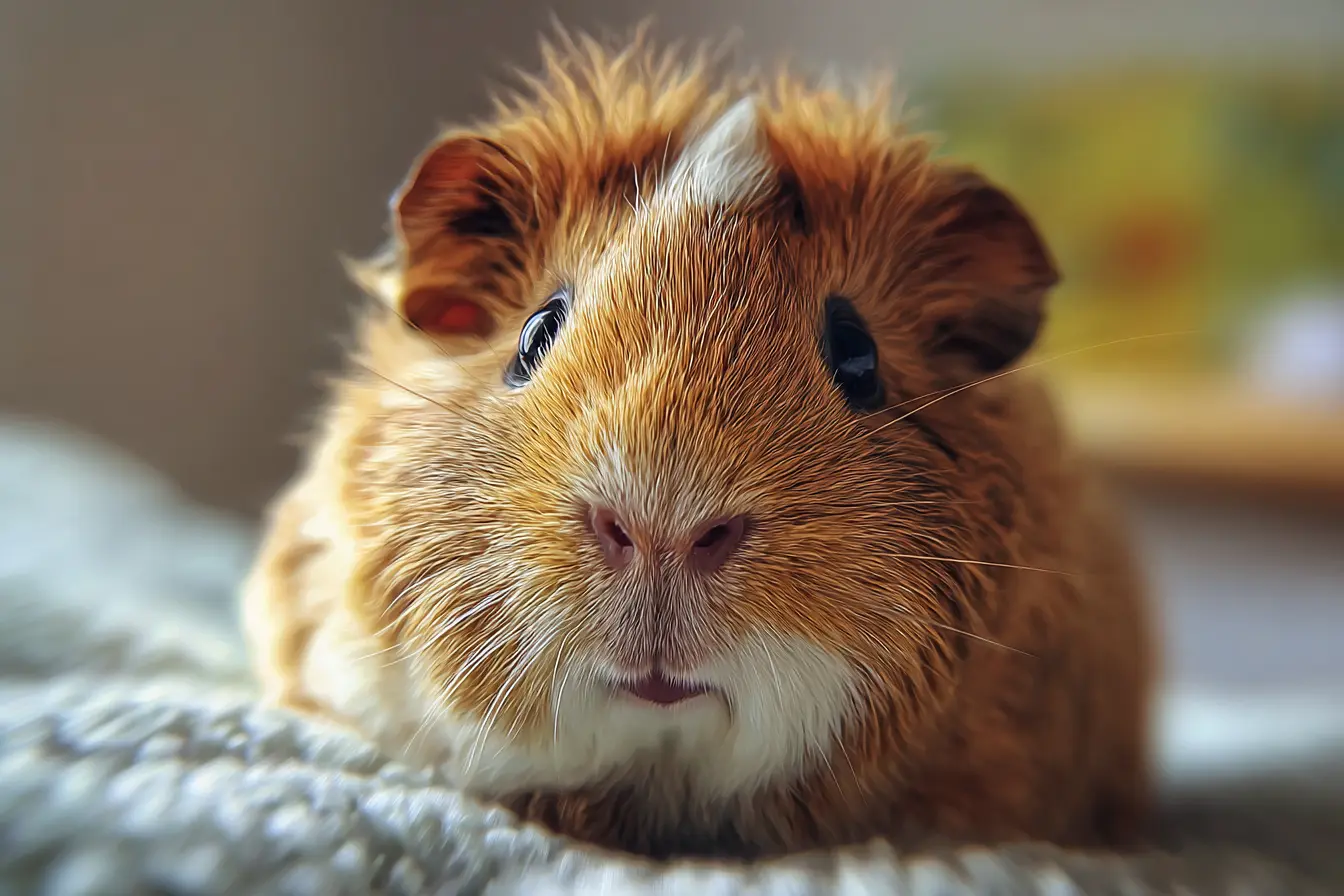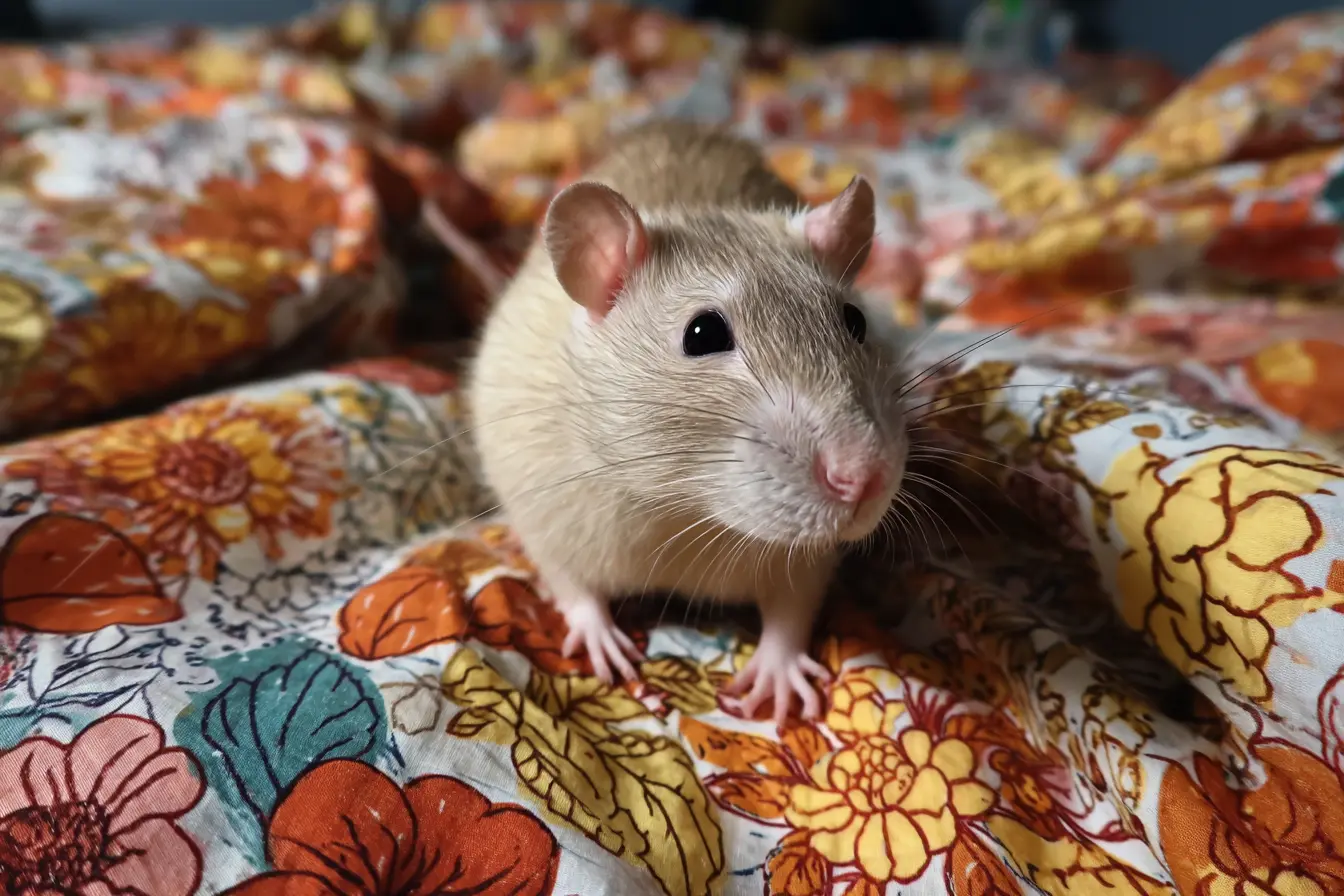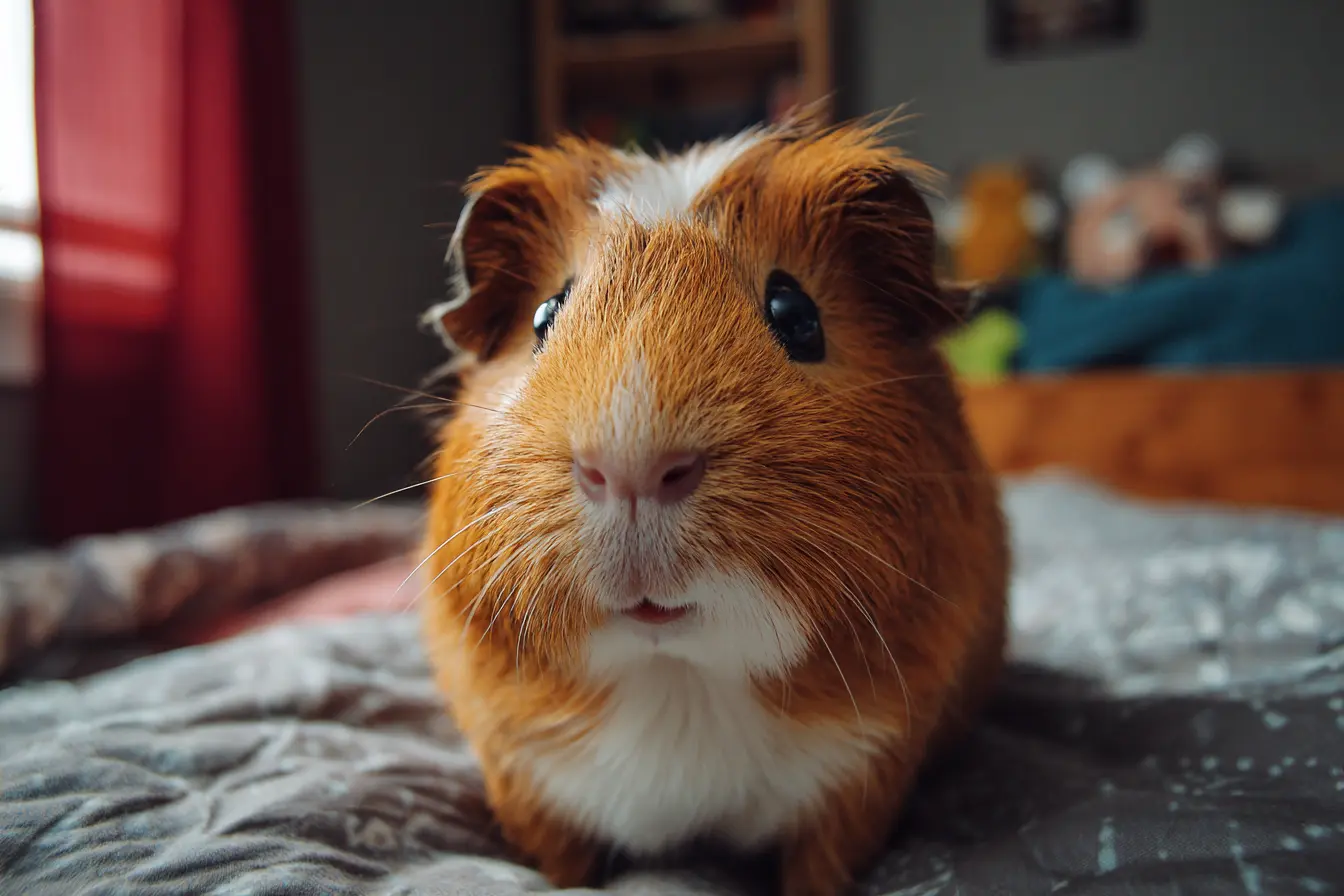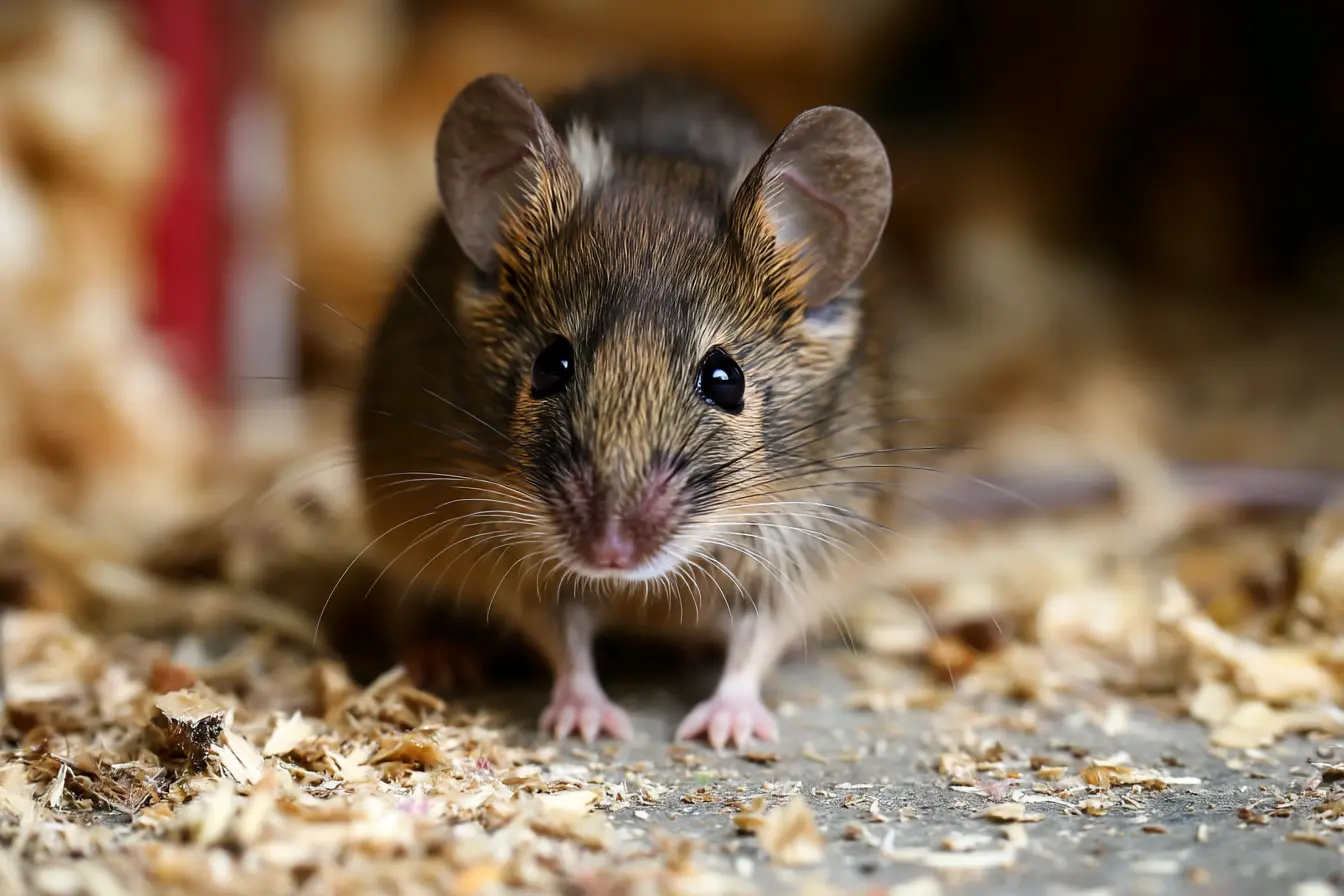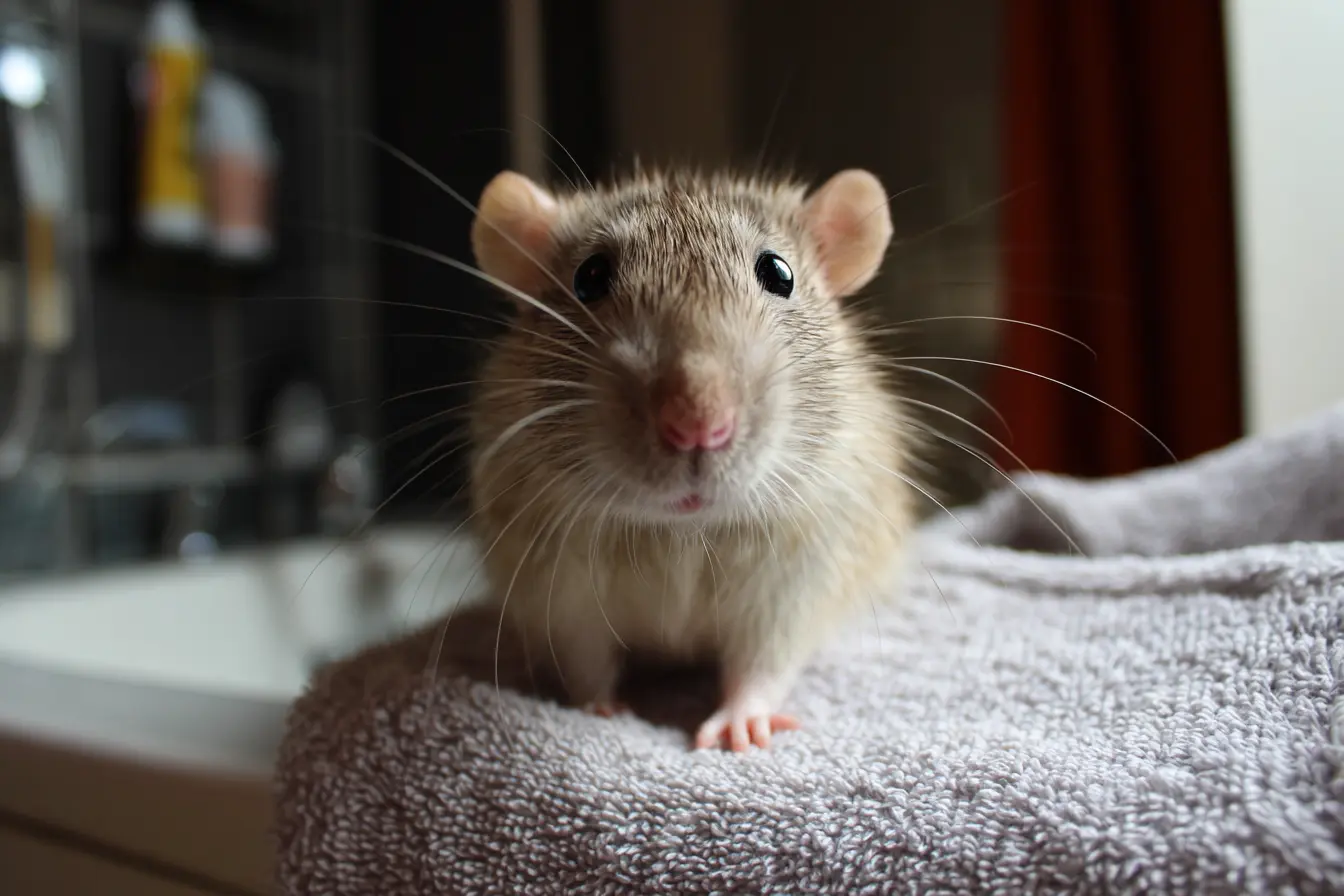
Dumbo Rats: Gentle, Intelligent Companions for the Dedicated Keeper
Dumbo rats are a much-loved variety of domestic rat, prized for their unique appearance and affectionate nature. With their wide-set ears, gentle temperament, and remarkable intelligence, dumbo rats make rewarding companions for those who are prepared to meet their social and environmental needs.
In this blog post, we'll explore everything you need to know about dumbo rats, from their origins and care requirements to their health and suitability as pets.
What Are Dumbo Rats?
Dumbo rats are not a separate species, but rather a variety of the fancy rat (Rattus norvegicus domestica). They are distinguished by their large, rounded ears set lower on the sides of their head, giving them a distinctive and endearing look.
The dumbo mutation appeared in the late 20th century and quickly became popular among breeders and pet keepers. Today, dumbo rats can be found in a wide range of coat colours, markings, and fur types.
Key Characteristics
- Size: 20–25 cm body length, with a tail nearly as long
- Weight: 250–500 g (females are usually smaller than males)
- Lifespan: 2 to 3 years on average
- Temperament: Gentle, intelligent, and highly social
- Appearance: Broad face, large eyes, and rounded ears set low on the head
Dumbo rats are just as active and clever as standard-eared fancy rats, but they are often described as calmer and more laid-back in personality.
Social Needs
Rats are exceptionally social animals and should never be kept alone. A dumbo rat will thrive in the company of its own kind, and same-sex pairs or groups are the most practical option for pet owners who do not wish to breed.
Living with companions allows dumbo rats to engage in natural behaviours such as grooming, playing, and sleeping in piles. A solitary rat is prone to stress, depression, and a shortened lifespan.
Housing and Environment
Providing a spacious, enriched habitat is crucial to your rats’ health and happiness.
Cage Requirements:
- Minimum size: 80 cm x 50 cm x 80 cm for a pair or small group (larger is always better)
- Type: Multi-level metal cages designed for rats or ferrets; avoid aquariums or enclosures with poor ventilation
- Bar spacing: No more than 1.5 cm to prevent escapes
- Bedding: Paper-based bedding, hemp, or aspen (avoid pine and cedar, which are toxic)
- Nesting material: Shredded paper or tissue
- Enrichment: Hammocks, ropes, tunnels, ladders, climbing toys, boxes, and solid-surface wheels
Rats love to climb and explore, so vertical space is just as important as floor area. Clean the cage weekly and spot-clean daily to maintain hygiene.
Diet and Nutrition
Dumbo rats require a balanced omnivorous diet that supports their high activity levels.
Suggested Diet:
- Base food: A high-quality rat nugget or lab block to ensure balanced nutrition
- Fresh foods: Small portions of vegetables (broccoli, kale, peas, carrots, courgette) and fruit (apple, banana, berries)
- Protein: Cooked chicken, egg, insects, or mealworms in moderation
- Treats: Wholegrain pasta, rice, or seeds offered sparingly
- Avoid: Citrus fruits for males (can harm kidneys), sticky foods (risk of choking), and processed junk foods
Fresh water should always be available, ideally from a bottle and a dish to encourage natural drinking behaviour.
Handling and Behaviour
Dumbo rats are often more tolerant of handling than other rodents and can form deep bonds with their keepers.
Handling Tips:
- Begin with gentle hand-feeding to build trust
- Support their body fully when lifting
- Avoid sudden movements or grabbing from above
- Allow them free play in a safe, rat-proofed area outside the cage daily
With patience, dumbo rats can learn their names, come when called, and even perform tricks. They are affectionate and often enjoy sitting on their owner’s shoulder or snuggling in clothing.
Unique Traits
What sets dumbo rats apart from standard fancy rats is largely cosmetic, but they share many fascinating qualities with their close relatives:
- Large, low-set ears: Giving them a distinctive “baby-faced” look
- Strong intelligence: Capable of learning tricks and solving puzzles
- Affectionate nature: Many enjoy direct interaction with people
- Playfulness: They engage in games with cage mates and with humans
Health and Common Issues
Like all fancy rats, dumbos are prone to certain health conditions.
Common Health Concerns:
- Respiratory disease: Often caused by mycoplasma infection; good ventilation helps reduce risk
- Tumours: Mammary and pituitary tumours are unfortunately common
- Parasites: Mites and lice may occur in poor conditions
- Obesity: Caused by lack of exercise or overfeeding
Regular health checks, a clean environment, and a knowledgeable vet familiar with rats are essential.
Is a Dumbo Rat Right for You?
Dumbo rats are ideal for:
- Individuals seeking an interactive, affectionate pet
- Families with older children (with supervision)
- Keepers who can dedicate daily time to play and socialisation
- People with space for a large, well-furnished cage
They are not recommended for:
- Very young children (due to delicate handling needs)
- People who want a “low-maintenance” pet
- Those unable to commit to daily care and companionship
Conclusion
Dumbo rats are among the most rewarding small pets you can keep. Their sweet faces, calm personalities, and high intelligence make them wonderful companions for those who can give them the attention and enrichment they need.
While they may not live as long as some other pets, the time spent with them is full of joy, mischief, and affection. If you’re looking for an interactive, people-loving pet that thrives on companionship, the dumbo rat may be the perfect choice.
Vets near you
Speciality vets
- Aquatics vet specialists
- Birds vet specialists
- Camelids vet specialists
- Cats vet specialists
- Cattle vet specialists
- Deer vet specialists
- Dogs vet specialists
- Equines vet specialists
- Exotic vet specialists
- Goats vet specialists
- Pigs vet specialists
- Poultry vet specialists
- Sheep vet specialists
- Small Mammals vet specialists
- Wild vet specialists
Vet facilities
- Accessible by public transport
- Blood testing
- Car park nearby
- Client car park
- Dentistry
- Diagnostic imaging
- Disabled public access
- Flea and worm treatments
- Microchipping
- Mobile services
- Neutering
- Open at weekends
- Out-of-hours service
- Referral interests
- Referrals only
- Street parking outside
- Toilets available
- Vaccination clinic
